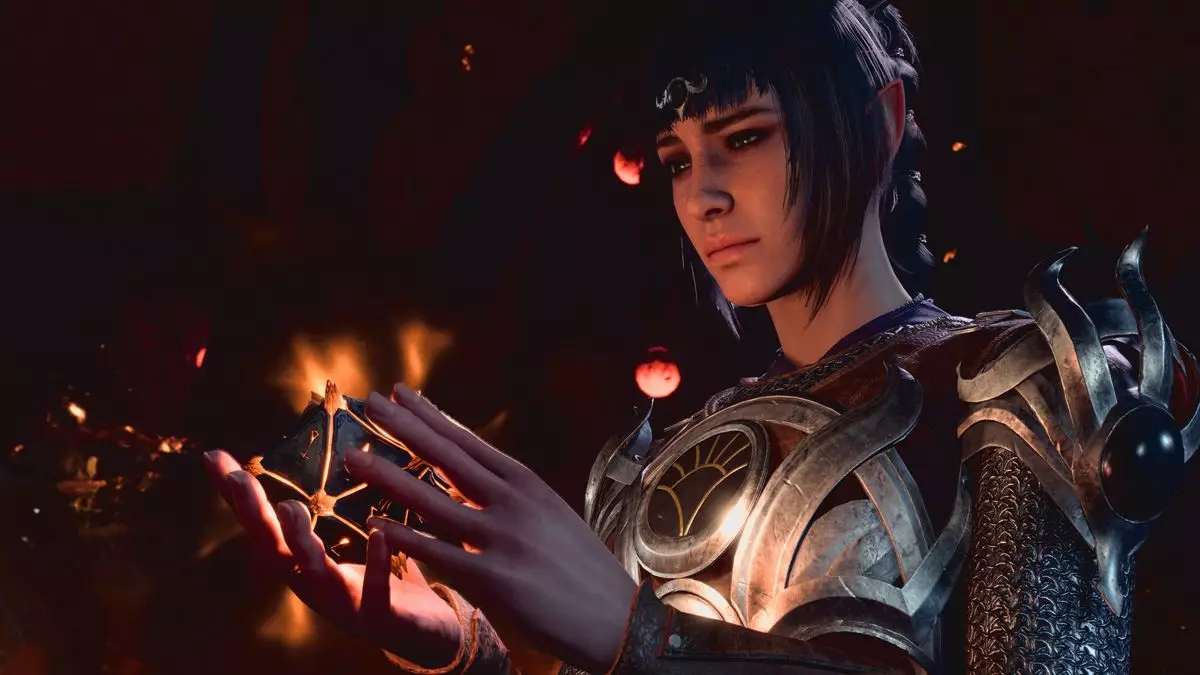Since its release, Baldur’s Gate 3 has not merely become a game; it has morphed into a significant cultural event that continues to spark discussions and excitement even a year and a half later. The game’s expansive universe and intricate narratives have profoundly impacted both players and actors involved, with actors like Jennifer English, who voices Shadowheart, experiencing an unparalleled transformation in their careers. The dialogue surrounding this title underscores its profound connection with the gaming community, exemplifying how a single game can change lives and alter professional trajectories.
The ongoing discussions surrounding the game point to its rich storytelling and the emotional depth of its characters. Larian Studios has evoked a sense of community and belonging, drawing fans into a world that feels alive and incredibly personal. As English reflects on her experience following the game’s success, it is evident that her journey is not unique but rather emblematic of the transformative power of video games, highlighting an essential aspect of contemporary entertainment: the ability to resonate with audiences on deeply personal levels.
Jennifer English’s journey post-Baldur’s Gate 3 has been nothing short of incredible. Her selection for the BAFTA Breakthrough program emphasizes the critical acknowledgment of emerging talents and the profound effects that such a character can have on an actor’s career. “My life has changed completely since last we spoke” encapsulates the essence of her transformation, as she now experiences the duality of recognition and scrutiny associated with fame.
The popularity of Shadowheart, primarily through her compelling narrative arc, allowed English to garner admiration and connection with fans worldwide. As players delved into her character’s multifaceted journey, the lines between actor and character blurred, leading to a shared sense of legacy. English’s reflections reveal the dichotomy faced by actors who involve themselves with beloved characters: they must embrace the nature of fandom without compromising the authenticity that initially attracted them to the role. In expressing her dedication to “the truth of a character,” English illustrates the commitment required to navigate such a landscape while retaining artistic integrity.
One of the standout features of Baldur’s Gate 3 is its branching narratives, which allow players to personalize their experiences dramatically. Shadowheart’s evolution, influenced by player choices, emphasizes the depth of storytelling that many modern games strive to achieve. English’s insights into the non-linear progression of her character reveal a key design philosophy: there is no singular “correct” narrative path. Instead, her character embodies the choices and decisions made by players throughout the game, fostering a unique relationship between the character and each individual player.
This flexibility in gameplay and moral ambiguity enriches the gaming experience, prompting a discussion about the role of player agency in storytelling. As English aptly states, dismissing any conclusion as “canon” undermines the sheer diversity of player experiences. Each storyline, whether aligned with Shadowheart’s darker or more redemptive traits, represents a distinct journey filled with emotional stakes and ethical dilemmas.
Humor is an essential component of community engagement, and English’s playful commentary injects a refreshing levity into the otherwise serious discussions surrounding character narratives. Her jest regarding peculiar player choices serves a valuable purpose: it creates a shared understanding among players about the whimsical but complex nature of in-game interactions. This acknowledgment reinforces a sense of community, allowing players to bond over the unique and often absurd experiences encountered in the game.
Decisions made within Baldur’s Gate 3, no matter how humorous or bizarre, encapsulate the game’s degree of freedom. It is a reminder that games can provoke thought while also being a source of pure entertainment. The very act of engaging with the game—whether it is pursuing roguish antics or forming deep relational bonds—demonstrates the wide-ranging appeal and capacity for personal expression that gaming offers.
Looking Towards the Future
While characters like Shadowheart define certain experiences, the future remains open-ended, creating a space for discussions about new narratives. English notes the integrity of Larian Studios and the potential for future projects, reflecting the ongoing evolution of the Baldur’s Gate universe. The uncertainty surrounding Shadowheart’s fate leaves fans longing for more, yet it also invites speculation about how character storytelling could further expand in future endeavors.
The legacy of Baldur’s Gate 3 will likely endure as Larian Studios continues to explore the richness of their universe. As actors like Jennifer English navigate their personal and professional journeys, they remind us of the transformative power and cultural significance of video games. Whether through performance, player choice, or community-building, the stories crafted by developers continue to resonate deeply, influencing not just the landscape of gaming but also the careers of those who bring these characters to life.


Leave a Reply